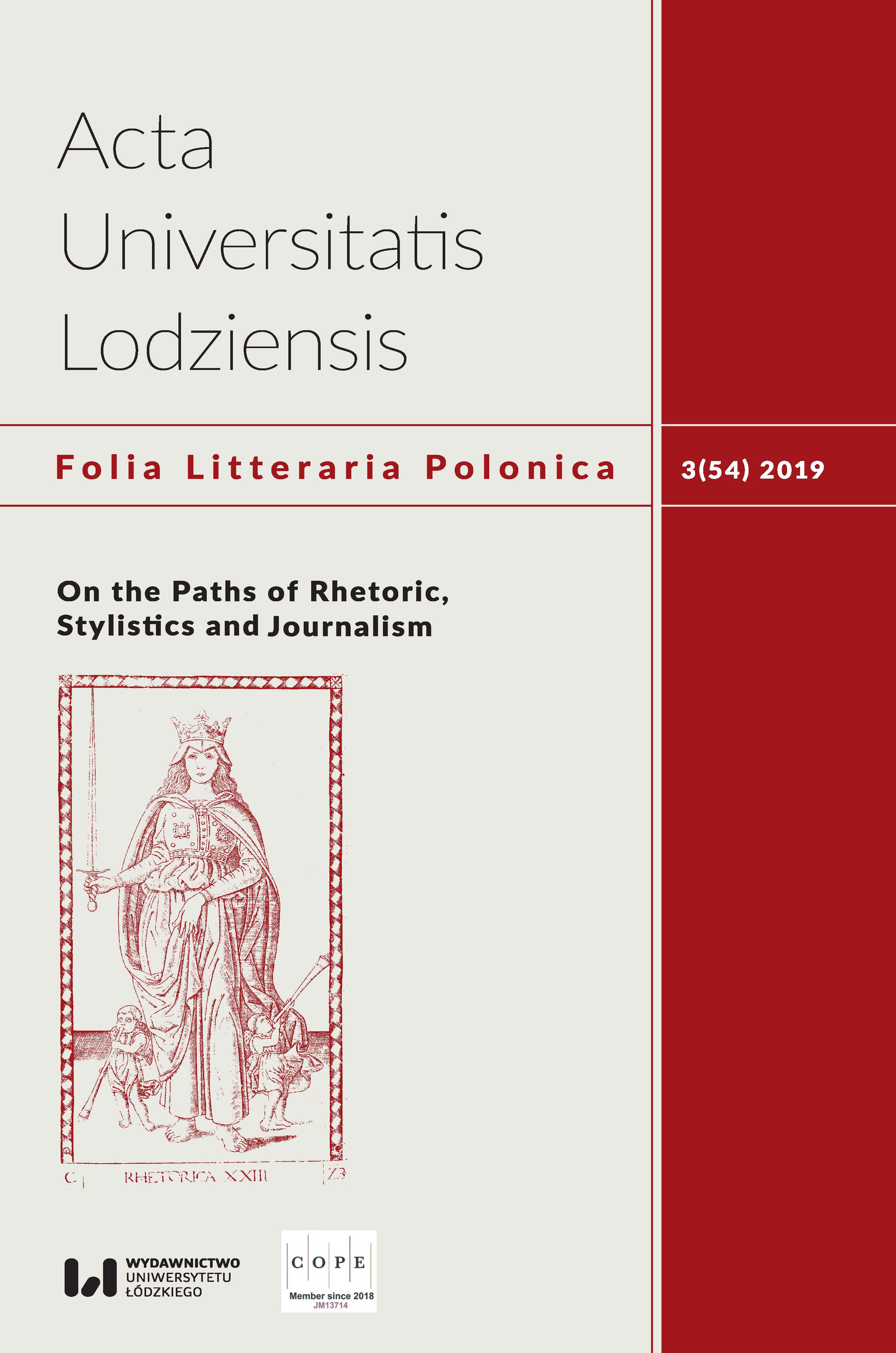On not Yielding to Temptation
DOI:
https://doi.org/10.18778/1505-9057.54.12Keywords:
personality, temptation, moral and legal legalism, social normsAbstract
The notion of yielding to temptation has already been studied by ethnographers, sociologists, and morality researchers. Yet the situation is different in the area of social psychology. My review of the literature in that scope indicated the existence of two dominant research perspectives used in studies on the situation of giving in to temptation: the perspective related to resocialisation psychology, which discusses the notion in terms of behaviour, and the perspective of the psychology of morality. The results of the research which indicated that in most cases people are ready to, e.g. yield to the temptation of easy gains, despite their declared appreciation of the legal and ethical norms prohibiting the misappropriation of other people’s property, formed the starting point for my study. What else if not the legal framework can prevent a person from giving in to temptation when it arises? What role does our personality play in that? The article presents the results of a study into the correlation between personality-based variables and a person’s yielding to temptation.
Downloads
References
Aronson E., Wilson T.D., Akert R.M., Psychologia społeczna – serce i umysł, trans. A. Bezwinska, E. Hornowska, Zysk i S-ka, Poznań 2004.
Google Scholar
Brzozowski P., Drwal R., Kwestionariusz osobowości Eysencka. Polska adaptacja EPQ-R. Podręcznik, Pracownia Testów Psychologicznych, Warszawa 1995.
Google Scholar
Drwal R., Adaptacja kwestionariuszy osobowości. Wybrane zagadnienia i techniki, Wydawnictwo Naukowe PWN, Warszawa 1995.
Google Scholar
Hall C.S., Lindzey G., Teorie osobowości, trans. collective work, Wydawnictwo Naukowe PWN, Warszawa 1998.
Google Scholar
Kosewski M., Agresywni przestępcy, Wiedza Powszechna, Warszawa 1977.
Google Scholar
Kosewski M., Ludzie w sytuacji pokusy i upokorzenia, Wiedza Powszechna, Warszawa 1985.
Google Scholar
Kucharewicz J., Psychologiczna analiza procesów motywacyjnych przestępstw popełnianych przez nieletnich (na przykładzie przestępstw agresywnych i nieagresywnych), Katowice 2008, doctoral dissertation prepared at the University of Silesia, Faculty of Pedagogy and Psychology.
Google Scholar
Oleś P., Wprowadzenie do psychologii osobowości, Wydawnictwo Naukowe „Scholar”, Warszawa 2003.
Google Scholar
Pospiszyl K., Psychologiczna analiza wadliwych postaw społecznych młodzieży, PWN, Warszawa 1973.
Google Scholar
Pospiszyl K., Psychopatia. Istota, przyczyny i sposoby resocjalizacji antysocjalności, PWN, Warszawa 1985.
Google Scholar
Pospiszyl K., Żabczyńska E., Psychologia dziecka niedostosowanego społecznie, PWN, Warszawa 1980.
Google Scholar
Problemy psychologiczno-psychiatryczne w procesie karnym, J.M. Stanik (ed.), Wydawnictwo Uniwersytetu Śląskiego, Katowice 1985.
Google Scholar
Psychologiczne i psychiatryczne opiniodawstwo sądowe w ramach nowych uregulowań prawnych, J.M. Stanik, Z. Majchrzyk (eds.), Wydawnictwo Uniwersytetu Śląskiego, Katowice 2001.
Google Scholar
Sosnowski T., “Lęk jako stan i jako cecha w ujęciu Charlesa D. Spielbergera”, Przegląd Psychologiczny 1997, vol. 20, no. 2, pp. 349–359.
Google Scholar
Sosnowski T., Wrześniewski K., “Polska adaptacja inwentarza STAI do badania stanu i cechy lęku”, Przegląd Psychologiczny 1983, vol. 26, no. 2, pp. 393–412.
Google Scholar
Stanik J.M., “Diagnozowanie niedostosowania społecznego i asocjalności”, [in:] Resocjalizacja. Teoria i praktyka pedagogiczna, J.M. Stanik, B. Urban (eds.), vol. 1, PWN, Warszawa 2007, pp. 168–203.
Google Scholar
Stanik J.M., “Warunki opiekuńczo-wychowawcze w rodzinie, radzenie sobie z wymaganiami szkolnymi a stopień ryzyka przestępczości nieletnich”, [in:] Przestępczość nieletnich. Aspekty psychospołeczne i prawne, J.M. Stanik, L. Woszczek (eds.), Wydawnictwo Uniwersytetu Śląskiego, Katowice 2005.
Google Scholar
Stanik J.M., “Wybrane koncepcje i wyniki badań kryminologicznych a perspektywy resocjalizacji”, [in:] Resocjalizacja. Teoria i praktyka pedagogiczna, J.M. Stanik, B. Urban, Warszawa 2007, pp. 116–136.
Google Scholar
Strelau J., Psychologia temperamentu, 2nd edition, Wydawnictwo Naukowe PWN, Warszawa 2002.
Google Scholar
Zaleski Z., Woźnicka A., “Uleganie pokusie czynu nielegalnego z perspektywy psychologicznej”, Prakseologia 2003, issue 143, pp. 331–349.
Google Scholar
Downloads
Published
How to Cite
Issue
Section
License

This work is licensed under a Creative Commons Attribution-NonCommercial-NoDerivatives 4.0 International License.











